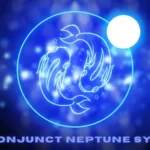Introduction to Jen Astone
Meet Jen Astone, a trailblazer in the realm of biocultural diversity. Her passion for preserving the intricate connection between human cultures and their surrounding ecosystems has led to groundbreaking projects and initiatives that are shaping a more sustainable future. Join us as we delve into Jen inspiring journey, her impactful work, and the legacy she is creating in championing biocultural diversity.
Her Background and Journey into Biocultural Diversity
Jen Astone’s journey into biocultural diversity is a fascinating tale of passion and purpose. Growing up surrounded by nature, she developed a deep appreciation for the interconnectedness of all living beings. Her academic pursuits in environmental studies led her to understand the critical link between cultural diversity and biodiversity.
Through fieldwork and research, Jen witnessed firsthand the rich tapestry of traditions and knowledge held by indigenous communities around the world. This experience ignited a fire within her to champion biocultural diversity as a means of preserving our planet’s ecosystems.
With unwavering determination, Jen embarked on various projects aimed at empowering local communities to protect their traditional practices while embracing sustainable solutions. Her collaborative approach has bridged gaps between different stakeholders, fostering harmony between people and nature.
Despite facing challenges along the way, Jen’s resilience and commitment have paved the path for positive change in the realm of biocultural diversity.
The Importance of Biocultural Diversity
Biocultural diversity is not just about protecting nature; it’s also about preserving the rich tapestry of human cultures and traditions that are intricately linked to their natural environments. This intersection between biodiversity and cultural diversity is vital for maintaining the resilience of ecosystems and societies alike.
When we safeguard biocultural diversity, we not only ensure the survival of unique plant and animal species but also uphold indigenous knowledge systems that have sustained communities for generations. These traditional practices offer valuable insights into sustainable resource management, agriculture, medicine, and more.
By recognizing the interconnectedness of all life forms on Earth, we can promote harmony between humans and nature. Embracing biocultural diversity means respecting different ways of life while working together to address pressing environmental challenges facing our planet today. It’s a holistic approach that honors both biological and cultural heritage for a more resilient future.
Projects and Initiatives Led by Jen Astone
Jen Astone is a trailblazer in the field of biocultural diversity, spearheading various projects and initiatives that aim to protect and preserve the rich tapestry of ecosystems and cultures around the world. Through her work, she has been instrumental in bridging the gap between environmental conservation and cultural heritage.
One of Jen’s notable projects involves working closely with indigenous communities to develop sustainable land management practices that not only benefit the environment but also uphold traditional knowledge and customs. By empowering local tribes to be stewards of their ancestral lands, Jen is fostering a harmonious relationship between people and nature.
Furthermore, Jen has led initiatives focused on promoting eco-tourism as a means to support both biodiversity conservation and local livelihoods. By creating opportunities for visitors to engage with indigenous cultures in a respectful manner, these projects help raise awareness about the importance of preserving biocultural diversity.
Jen Astone’s dedication to advancing biocultural diversity through her innovative projects sets a shining example for conservationists worldwide.
Impact and Success Stories of Jen Astone’s Work
Jen Astone’s work in biocultural diversity has made a profound impact on communities worldwide. Through her initiatives, she has successfully empowered indigenous groups to protect their traditional knowledge and natural resources. One of the notable success stories is the revival of endangered plant species by working closely with local tribes to cultivate and preserve them.
By integrating traditional practices with modern conservation strategies, Jen has been able to create sustainable solutions that benefit both people and the environment. Her efforts have not only preserved biodiversity but also improved livelihoods for marginalized communities.
Through collaborative projects, Jen has facilitated cross-cultural exchanges that foster understanding and respect among different groups. These interactions have led to innovative approaches to conservation that prioritize local needs and perspectives.
Jen Astone’s impact in championing biocultural diversity serves as a testament to the positive outcomes that can be achieved through inclusive and community-driven initiatives.
Challenges Faced and How They Were Overcome
Facing challenges is inevitable in any endeavor, and Jen Astone certainly didn’t have a smooth sailing journey in championing biocultural diversity. From bureaucratic hurdles to resistance from traditionalists, she encountered a myriad of obstacles along the way.
One significant challenge was securing funding for her projects; convincing stakeholders of the importance of preserving both biological and cultural diversity required persistence and strategic planning. Additionally, navigating complex societal dynamics and balancing competing interests posed another set of difficulties.
To overcome these challenges, Jen leveraged her strong network of like-minded individuals and organizations that shared her vision. Collaborating with local communities and experts helped bridge gaps and foster understanding. Embracing innovative approaches and adapting to changing circumstances were key strategies in surmounting obstacles.
While challenges persisted, Jen’s unwavering dedication to the cause propelled her forward, turning adversities into opportunities for growth and impact.
Future Plans for Advancing Biocultural Diversity
Looking ahead, Jen Astone is determined to continue her efforts in advancing biocultural diversity. She plans to collaborate with more indigenous communities worldwide to preserve their traditional knowledge and practices. By fostering partnerships with local organizations and governments, she aims to create sustainable conservation projects that benefit both people and the environment.
Jen envisions expanding educational programs to raise awareness about the importance of biocultural diversity among younger generations. Through workshops, conferences, and online resources, she hopes to inspire a new wave of advocates committed to safeguarding our planet’s rich cultural heritage.
Additionally, Jen intends to explore innovative technologies and methodologies that can enhance the documentation and protection of endangered languages, rituals, and biodiversity hotspots. By leveraging cutting-edge tools for research and monitoring, she seeks to ensure the long-term viability of these critical resources for future generations.
Conclusion: The Legacy of Jen Astone in the Field of Biocultural Diversity
Jen Astone’s legacy in the field of biocultural diversity is truly remarkable. Her passion, dedication, and innovative approach have paved the way for meaningful change in preserving and celebrating the interconnectedness of ecosystems and cultures around the world. Through her projects and initiatives, Jen has not only raised awareness but also inspired action towards safeguarding our planet’s rich biodiversity and cultural heritage.
As a champion for biocultural diversity, Jen Astone continues to be a guiding light for individuals and organizations seeking to make a positive impact on our environment and society. Her work serves as an inspiration for future generations to value, protect, and promote the harmonious relationship between people and nature. Jen’s legacy will undoubtedly endure as a testament to the power of individuals who are determined to create a more sustainable and inclusive world for all.
FAQs
Q:Who is Jen Astone?
Ans.Jen Astone is a visionary leader at the Swift Foundation, dedicated to promoting biocultural diversity through sustainability and cultural preservation initiatives.
Q:What is the Swift Foundation?
Ans.The Swift Foundation is an organization focused on fostering harmony between people and the environment, particularly through supporting projects that preserve cultural diversity and ecological integrity.
Q:What motivates Jen Astone’s work?
Ans.Jen Astone’s work is motivated by a deep passion for sustainability and a belief in the importance of preserving cultural diversity alongside environmental conservation efforts.
Q:How does Jen Astone contribute to biocultural diversity?
Ans.Jen Astone contributes to biocultural diversity by spearheading projects at the Swift Foundation that promote sustainable practices and preserve traditional knowledge systems globally.
Q:What impact has Jen Astone and the Swift Foundation made?
Ans.Jen Astone and the Swift Foundation have made a significant impact by supporting initiatives that strengthen the resilience of communities and ecosystems, ensuring a sustainable future for generations to come.







